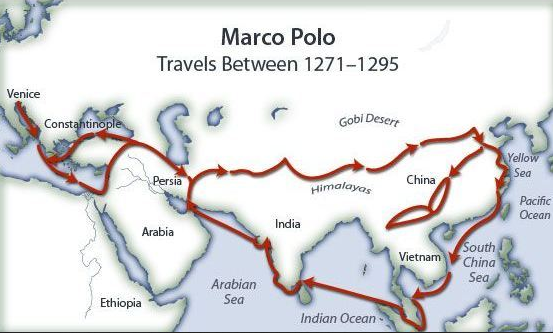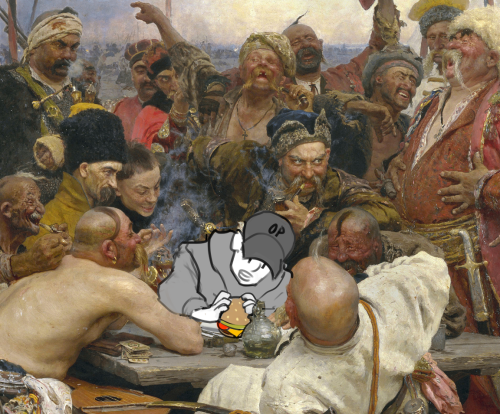Miraculous cake
What’s cake?
Cake seems pretty simple at its core: mix up some flour, sugar, eggs, and butter, then bake it, and you’ve got a cake. The end. Right?
Take a closer look at what had to happen for cake to be possible, however, and you’ll notice things aren’t so obvious.
At the dawn of our history, someone in the Middle East must’ve noticed that this golden-colored grass (we call it “wheat”, by the way) seems to grow everywhere, and then someone must’ve realized you can eat it and then someone figured out how to cultivate it and harvest it, and then someone had the bright idea to grind it into a powder because that’s what you do with mysterious grasses growing in the wild, right?
And someone else discovered a different type of sweet-tasting grass from tropical parts of Asia. Of course, it’s hard to use sugarcane in its raw form– you can gnaw on it a bit and it tastes nice, but it’s hard to chew after a while and has a weird texture in your mouth. Anyways, then a whole bunch of people were involved in figuring out all the steps for turning this purple rod into a dry, grainy substance we call “sugar”.

What sugarcane actually looks like– it’s not obvious you should even bite it, huh?
And someone encountered these wild birds we call “chickens” running around in the jungles of Asia. After some (probably painful) trial and error, they discovered you can eat these rounded things we call “eggs” by taking off the shell. That’s pretty nice, since now you don’t have to bite into it directly and get a mouthful of splinters. (Well, unless you really want the shell as a calcium supplement, I guess– I’m not a nutritionist, don’t ask me.)
And someone figured out that cows make milk that you can drink– but also if you let the milk sit around instead, it eventually forms this creamy layer on top, and then someone else discovered that you can turn the creamy layer into a solid just by stirring it really hard.
And then a whole bunch of people across thousands of years figured out how to transport things across great distances and keep them from spoiling or breaking or being otherwise ruined, making it possible to get all these different things together in one place. You certainly can’t make a cake by collecting a few eggs in Asia and walking across an entire continent to where the wheat is, all while picking up milk and sugar somewhere along the way.

Worst grocery commute ever
Someone also figured out this neat culinary technique called “baking in an oven” that seems to work really well when you mix these four ingredients. And somehow, after all this historical narrative that stretches across the ages, we’ve only barely scratched the surface for what really goes into a simple, undecorated cake– forget elaborate designs, or different styles of cake, or food chemistry, or how you power the oven, or cake’s cultural significance.
What makes it all so remarkable isn’t just any one individual’s experiments with some grass growing in the wilderness. The amazing part is in the vastness of it all, all the small discoveries and creations that led us to this point– each one mundane, earthy, and based in a fundamentally human way of being, combining to allow us to experience the miracle of cake.
Human ingenuity begets infrastructure, that convenient layer between our soft, imperfect animal bodies and the unforgiving, hazardous rest of the world. Like a well-trained theater crew, infrastructure hides the scary, complicated, real things away from us. When the lights are on and the wheels are spinning and the water is flowing, we’re led to not notice the whirring bits and mechanisms that undergird our existence. Usually that’s pretty convenient.
The reality about reality, though, is that there’s always a lot of detail always bubbling just beneath the surface. Pay attention and you’ll never run out of things to notice. How much do you know about how luthiers warp the wood in a violin to shape the curves properly? How often do we hear about the scientists whose work directly led to a COVID-19 vaccine? Without looking it up on the internet, can you name one such scientist? Do you truly, fully understand the entire behemoth of a logistics and operations system that makes sure fresh strawberries can make their way from the soil to supermarkets to your mouth intact? Does anyone?
It’s easy to look at the vast creation of humanity and assume it’s the work of masterminds (benevolent or otherwise) beyond our comprehension, or take it for granted and ignore the constraints of reality that infrastructure hides from us. In truth, however, our world was thought up and built by people as human as we are. Our world is magical, but not because of some superhero or supervillain– it’s magical precisely because it was made by people who didn’t have powers beyond ours, an endless chain of such people stretching through the ages.
![]()
Every ancient love letter and the parchment it was written on, every metal blade and wood carving and silk robe and glass sculpture and steel I-beam, every scrap of knowledge of wetland ecosystems and rocketry and cross-stitching and music theory, every tube of lipstick and every tube sock and every tube top and every test tube and all of Youtube, and every last tiny speck of dust of our existence has the touch of humanity upon it. This, right here, right now, is the heaven1 they longed for in the ancient times. Civilization is us delivering on a promise to the thousands of generations of our ancestors who once dreamt of paradise. Can you feel them smiling down upon us?

“Every lice-covered cossack and illiterate serf and three-toothed yak herder in my lineage is with me in this restaurant.” - SilentWalrus1
Miraculous cake isn’t specifically about our ability to grow wheat, or reliably power an oven, but rather our way of being that made it happen. Our electrified world (and our ability to leave it, should we feel the urge) is magical, but the magic isn’t in the vast number of electrons we inconvenience in the process, it’s in our ability to dance with Mother Nature to bring it into existence.
And yet, in a sense, we’re still at the very beginning of the grand human project. Our task now isn’t all that different from that of the generations before us. We still inhabit an orchard filled with ancient trees, branches weighted down with the fruit of creation for us to give to our children. And, if we succeed, perhaps we’ll all get to go to our children’s children’s children’s children’s children’s children’s birthday parties and get to enjoy a delicious slice of cake, savoring it for the miracle that it is.
–
Notes
1:
It’s worth mentioning that this often runs into an objection along the lines of, “well, things aren’t perfect right now, so how can you call the present heaven?” There’s some merit to remembering the good parts of the past that we might’ve lost along the way, but the objection misunderstands heaven as a perfect, unchanging place rather than something more dynamic and adaptable. Right here, right now is neither perfect nor unchanging, but it’s still heaven, is it not?
–
Thanks to Étienne for inspiring me to crystallize my thoughts on this in the form of an essay, and thanks to Erica for reading drafts of this!